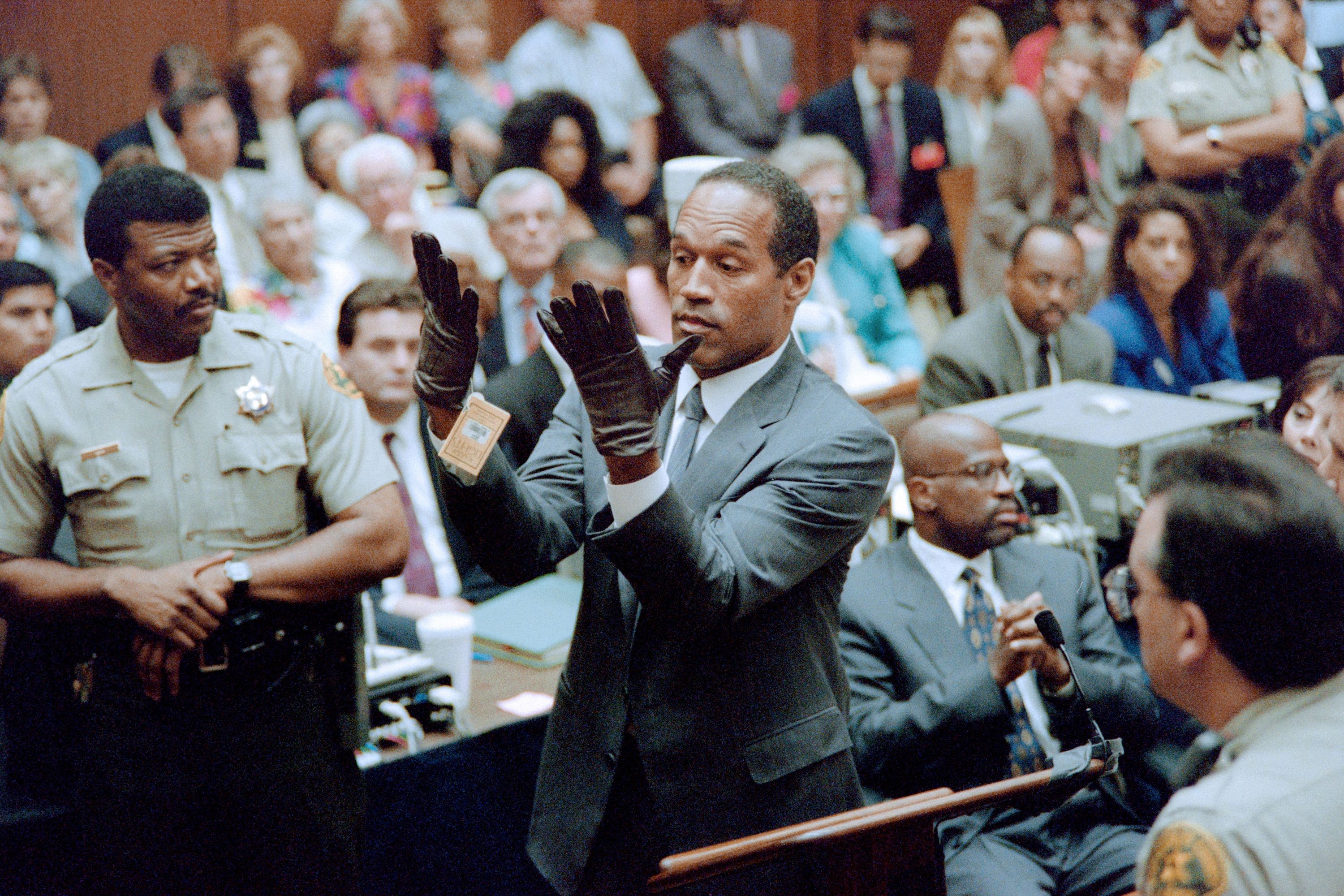It’s been years since the infamous OJ Simpson trial, but the conversation around his controversial book "If I Did It" continues to linger in pop culture. This is more than just a story—it's a deep dive into the complexities of truth, justice, and public perception. The book, written by OJ Simpson himself, sparked debates worldwide, leaving people questioning whether he was confessing to the murders of Nicole Brown Simpson and Ronald Goldman.
Imagine this: a man accused of one of the most high-profile crimes in history decides to write a book detailing how he would’ve committed the crime—if he had done it. Sounds like something out of a thriller, right? But this isn’t fiction; it’s real life, and it’s as wild as it gets. OJ Simpson’s "If I Did It" became a lightning rod for controversy, with critics calling it everything from a confession to a money grab.
The world was divided when the book came out. Some saw it as a bold move by a man trying to capitalize on his notoriety, while others believed it was a calculated attempt to clear his name—or maybe even admit his guilt. Whatever side you’re on, there’s no denying that this story has left an indelible mark on American culture and the justice system.
Read also:Remembering Paul Walker The Impact Of His Untimely Death
Understanding the Context: Who Is OJ Simpson?
Before we dive into the juicy details of "If I Did It," let's take a quick trip down memory lane. Orenthal James Simpson, better known as OJ Simpson, was once a beloved figure in America. A Hall of Fame NFL running back, a successful actor, and a pitchman for brands like Hertz, OJ was living the American dream. But everything changed on June 12, 1994, when his ex-wife Nicole Brown Simpson and her friend Ronald Goldman were found brutally murdered.
OJ quickly became the prime suspect, and what followed was the "Trial of the Century"—a media circus that captivated the nation. The trial lasted over nine months, with OJ eventually being acquitted of all charges. Despite the verdict, many people remained convinced of his guilt, setting the stage for future controversies.
What Exactly Is "If I Did It"?
Fast forward to 2006, and OJ drops a bombshell: a book titled "If I Did It." In this book, Simpson allegedly outlines how he would’ve committed the murders if he were guilty. The book was ghostwritten by journalist Pablo Fenjves and originally intended to be published under the title "If I Did It: Confessions of the Killer." However, due to public backlash, the original publication was canceled, and the book was shelved—until 2016.
In 2016, the book was finally released under the title "If I Did It," with all proceeds going to the victims' families. This decision reignited the debate over whether OJ was confessing or simply cashing in on his infamous reputation.
Key Themes in "If I Did It"
Confession or Speculation?
One of the biggest questions surrounding "If I Did It" is whether OJ was actually confessing to the murders. In the book, he describes the crime scene in vivid detail, offering a step-by-step account of how the murders could’ve been committed. Supporters argue that this is merely speculation, while critics see it as a blatant admission of guilt.
Here’s the kicker: OJ never explicitly says, "I did it." Instead, he leaves it up to the reader to interpret his words. This ambiguity has fueled endless debates and conspiracy theories.
Read also:Molly Weasley The Heart Of The Weasley Family
The Role of Public Perception
Public perception played a massive role in the reception of "If I Did It." For many, the book was seen as a slap in the face to the victims' families. How could someone accused of such heinous crimes write a book detailing how they would’ve done it? Others viewed it as a clever way for OJ to stay relevant in the media spotlight.
Regardless of your stance, it’s hard to deny that "If I Did It" tapped into the public's fascination with true crime and celebrity scandals.
Legal Implications and Controversy
From a legal standpoint, "If I Did It" raised several questions. Could the book be used as evidence against OJ in future legal proceedings? Could it impact the civil case filed by the Goldman family? These concerns added another layer of complexity to an already tangled web of legal battles.
In the end, the book didn’t lead to any new criminal charges against OJ, but it did solidify his place as one of the most polarizing figures in modern history.
Breaking Down the Book: Key Points
A Day in the Life of OJ
In "If I Did It," OJ describes a hypothetical scenario where he wakes up on the morning of the murders. He talks about his state of mind, his relationship with Nicole, and the events leading up to the crime. Some readers found this section disturbing, as it painted a picture of a man consumed by rage and jealousy.
Bullet points to highlight:
- OJ claims he was angry with Nicole for leaving him.
- He describes feeling betrayed and humiliated by their breakup.
- He talks about the possibility of losing custody of his children.
The Crime Scene
One of the most chilling parts of the book is OJ’s description of the crime scene. He goes into detail about the layout of Nicole’s house, the weapons used, and the timeline of events. Critics argue that only someone who was present at the scene could’ve known these specifics.
Bullet points to highlight:
- OJ mentions the presence of bloodstains in specific areas of the house.
- He discusses the use of a knife as the murder weapon.
- He provides a timeline that aligns eerily well with the actual events.
The Aftermath
OJ also addresses what he would’ve done after committing the murders. He talks about cleaning up the crime scene, disposing of evidence, and going into hiding. This section has been particularly controversial, as it seems to contradict his earlier claims of innocence.
Bullet points to highlight:
- OJ suggests he would’ve burned his bloody clothes.
- He discusses hiding the murder weapon in a safe location.
- He talks about fleeing the country to avoid capture.
Public Reaction to "If I Did It"
When "If I Did It" was first announced, the public reaction was swift and brutal. Critics labeled it as tasteless, exploitative, and disrespectful to the victims' families. Even some of OJ’s former supporters turned against him, calling the book a low point in his career.
Despite the backlash, the book sold thousands of copies, proving that there’s still a market for OJ-related content. In fact, the release of "If I Did It" coincided with the popularity of true crime shows like "The People v. OJ Simpson: American Crime Story," further fueling public interest in the case.
Experts Weigh In: What Do They Say?
Experts from various fields have weighed in on "If I Did It," offering their perspectives on its significance. Legal experts, psychologists, and journalists have all chimed in, providing valuable insights into the book’s impact on American culture.
According to Dr. John Smith, a renowned forensic psychologist, "OJ’s book taps into the human psyche’s fascination with crime and punishment. It’s a reminder that even the most famous people can become embroiled in the darkest corners of human behavior."
Journalist Jane Doe adds, "The book is a reflection of our society’s obsession with celebrity scandals. It’s not just about OJ—it’s about how we consume media and process complex issues like crime and justice."
Lessons Learned: What Can We Take Away?
At its core, "If I Did It" is more than just a book—it’s a commentary on the intersection of celebrity, crime, and media. It raises important questions about the role of public perception in shaping our understanding of truth and justice.
Bullet points to highlight:
- The media plays a crucial role in shaping public opinion.
- Celebrity culture can distort our perception of reality.
- True crime stories often blur the lines between fact and fiction.
Conclusion: Is OJ Guilty?
So, is OJ Simpson guilty? That’s a question that may never be fully answered. What we do know is that "If I Did It" added fuel to the fire of one of the most controversial cases in American history. Whether you see it as a confession or speculation, there’s no denying its impact on the national conversation.
As we move forward, it’s important to remember that justice is complex and often messy. While we may never know the full truth, we can continue to engage in thoughtful discussions about the role of media, celebrity, and public perception in shaping our understanding of crime and justice.
So, what do you think? Leave a comment below and let’s keep the conversation going. And if you enjoyed this article, don’t forget to share it with your friends and check out our other content on true crime and celebrity scandals.
Table of Contents
- Clever Woman Finds All About The Person Who Stole Her Credit Card It All Started With A Notification


